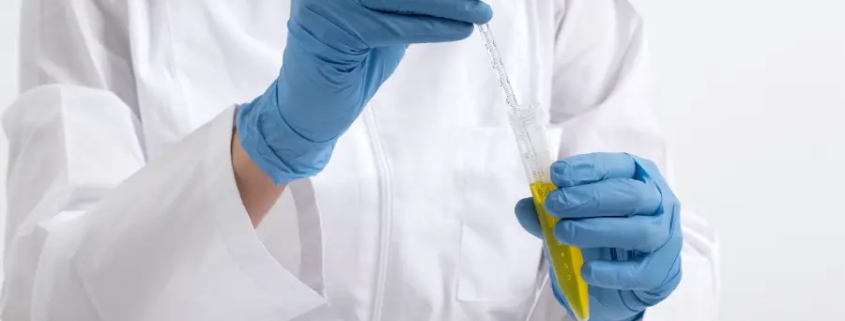Will I Lose My Job if I Fail a Drug Test?
A failed drug test can put your reputation — and your job — on the line, especially if it goes against the company’s drug testing policy. Learn what a failed employee drug test can mean for your future in our guide below.
Failing a drug test can create immediate fear and uncertainty, especially when your job is on the line due to failing a drug test. Whether or not you lose your job after an employee fails a test depends on a number of variables, including your employer’s policies, the nature of your job, state laws, and whether you are subject to federal regulations. While some workplaces have zero-tolerance policies that mandate automatic termination, others may offer opportunities for treatment or rehabilitation before taking disciplinary action.
Many private-sector jobs in the U.S. are considered “at-will,” meaning employers can terminate employees for any reason that isn’t illegal, including a failed drug test. However, some workers are protected by union agreements, contracts, or regulations that require a more structured response.
Don’t Lose Your Job. Don’t Go to Jail
If you’ve ever struggled with substance abuse and are worried you can lose your job if you test positive for an illegal drug, hope is on the horizon. If you agree to a rehabilitation program for your addiction, your employer cannot fire you.
The same applies to those individuals who are required to submit to drug testing as part of probation or parole. If you test positive, but commit to treatment, you won’t go to jail. Let Journey Hillside Tarzana help you on the road to recovery with our comprehensive addiction treatment programs and support. Take the fear and stigma away from addiction by seeking qualified treatment from our substance abuse experts, all in a comforting, supportive, and restorative environment. Call our intake specialists today at (877) 761-2723.
Workplace Drug Testing: Why Do Employees Need to Pass Drug Tests?
Companies require pre employment drug screening to reduce workplace risks, ensure safety, and maintain productivity. Here are the primary reasons employers implement these screenings as part of drug testing programs for new employees:
1. Ensuring a Safe Work Environment
Substance use can impair judgment, coordination, and reaction time—making it particularly dangerous in industries like construction, transportation, manufacturing, or healthcare. If an employee tests positive, this failed test can contribute to workplace safety and security, especially in safety sensitive industries. Pre-employment drug testing helps identify individuals who may pose a safety risk to themselves or others.
2. Reducing Liability and Risk
Employers may be held legally liable for accidents or injuries caused by an impaired employee. Drug testing serves as a preventive measure to limit potential claims, lawsuits, and workers’ compensation costs.
3. Promoting Productivity and Reliability
Employees who use illicit drugs are statistically more likely to have higher absenteeism, lower performance, and increased turnover rates. Screening applicants can help companies hire individuals more likely to meet attendance and performance expectations.
4. Complying with Federal or State Regulations
Certain industries are legally required to conduct drug testing under federal regulations. For example:
- Department of Transportation (DOT) mandates testing for commercial drivers, pilots, and other safety-sensitive roles.
- Contractors working on federal jobs may also be required to implement drug-free workplace policies.
5. Protecting Company Reputation
Hiring drug-free employees, particularly those free from substance use disorders, supports a professional work culture and public image. A single drug-related incident, especially in customer-facing or public service roles, can damage a company’s reputation and credibility.
6. Reducing Long-Term Costs
While drug testing has upfront costs, it can reduce long-term expenses by helping avoid:
- Costly accidents
- Legal fees
- Insurance premium hikes
- Productivity losses
Employment Drug Tests: Types of Drug Tests Employers Use
Employers may rely on several drug testing methods, each with its own detection window, level of accuracy, and suitability for different situations. Understanding how each pre employment drug test works can help employees better interpret their results and know what to expect during the testing process.
Urine Tests
Urine testing is the most widely used method in workplace drug screening.
- Detection window: Typically detects drug use within the past 1–10 days, depending on the substance.
- Advantages: Non-invasive, cost-effective, and accepted by most state and federal regulatory agencies.
- Limitations: May miss very recent use (within hours), and results can sometimes be influenced by dilution or adulteration.
- Common uses: Pre-employment screenings, random testing, post-accident investigations.
Hair Follicle Testing
Hair tests provide a much longer detection window and are harder to cheat.
- Detection window: Can detect repeated drug use up to 90 days prior.
- Advantages: Effective for identifying long-term patterns of use and difficult to tamper with.
- Limitations: Does not detect very recent drug use (within the past 7 days), and results can be influenced by hair treatments or color.
- Common uses: Background checks for sensitive positions or compliance with court-ordered testing.
Saliva (Oral Fluid) Testing
Saliva testing offers a short detection window, ideal for detecting current impairment.
- Detection window: Usually detects drug use within the past 24–72 hours.
- Advantages: Easy to administer, observed collection reduces tampering, and provides quick results.
- Limitations: Shorter detection span may miss intermittent use; less standardized for certain substances.
- Common uses: Post-accident or reasonable suspicion testing, especially where immediate results are needed.
Blood Testing
Blood tests are the most invasive but also the most accurate in detecting current levels of drugs in the body.
- Detection window: Detects very recent use—usually within minutes to a few hours after ingestion.
- Advantages: Offers precise concentration levels and real-time data on intoxication.
- Limitations: Expensive, invasive, requires trained personnel, and has a narrow window for detection.
- Common uses: Confirmatory testing following other positive results or in serious post-accident cases.
Other or Emerging Methods
- Sweat patch testing: Worn for several days to monitor drug use continuously; useful in probation or long-term monitoring.
- Breath testing (for alcohol): Rapid detection of blood alcohol concentration (BAC); commonly used in DOT and law enforcement.
Each testing method serves a different purpose based on the timing, required accuracy, and risk level associated with the job. For example, regulated industries like transportation or aviation often require urine or saliva testing under strict federal protocols, while employers in private sectors may opt for more flexible policies.
A Failed Drug Test: What Causes a Positive or Negative Result
A positive drug test means that a tested substance was found in your system above the established threshold. Substances commonly tested include:
- Marijuana (THC)
- Cocaine
- Opiates (heroin, morphine, codeine)
- Amphetamines and methamphetamines
- Phencyclidine (PCP)
- Benzodiazepines and barbiturates (in extended panels)
False positives can occur due to cross-reactivity with legal medications or even certain foods or supplements. If a test returns positive, it is typically reviewed by a Medical Review Officer (MRO) who will contact the employee to verify any valid prescription medications or explanations before confirming the result.
A negative result indicates that no tested drugs were found at detectable levels, or any detected substances were legally prescribed and verified. A failed drug test often requires retesting to eliminate the presence of over the counter medications, inaccurate or false positive test results. Employers must follow applicable federal and applicable laws on the state and local levels as well.
What Should You Do if You Fail a Drug Screening?
If you test positive on a drug screen, it’s important to act quickly and understand your options:
- Review your company’s policy – Check your employee handbook or employment contract to see what disciplinary steps are outlined for a failed drug test.
- Confirm the result – If allowed, request a confirmation test (often GC/MS) to rule out a false positive. Unusual drug test results, including false positive drug test results, can upend lives. It is critical to offer confirmation and to ensure compliance with laws.
- Speak with HR or an attorney – It may be in your best interest to get legal advice or consult with your human resources department confidentially.
- Consider treatment – Some employers offer Employee Assistance Programs (EAPs) or allow time off for rehabilitation. Voluntarily entering a treatment program may protect your job or improve rehire chances.
Commit to Treatment. Keep Your Job!

Journey Hillside Substance Addiction Treatment
Do you see the signs of a worsening problem with alcohol or drugs? Journey Hillside Tarzana provides comprehensive treatment for substance abuse, including alcohol use disorder. Our team of healthcare professionals have the experience and the compassion needed to help those with substance abuse issues overcome challenges, all in a luxurious, supportive in-patient environment. With our comprehensive approach to treatment and patient support, we can help patients control urges, conquer withdrawal symptoms, and learn coping mechanisms to improve mental health.
Grey area drinking can be one of the warning signs of a developing addiction to alcohol or drugs. Call Journey Hillside Tarzana today at 1 (877) 761-2723 to learn more or to begin your free confidential assessment.





